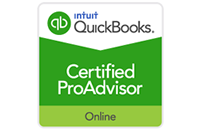Hiring your first employee can be an exciting (and terrifying) prospect. It’s almost always a sign of good news – hiring someone usually means that you’re on the right track and your business is growing. But if you’re not careful as you take on your first employee, it can also mean a big headache!
Following these five tips can help you make smart decisions when it comes time to bring someone on board, to save everyone time and trouble further down the road.
Get Your Ducks in a Row
The very first step you need to take is making sure that you have done everything you need to hire someone legitimately and legally. Obtaining an Employer Identification Number from the IRS, registering with your state’s Department of Labor to pay unemployment taxes, purchasing a worker’s compensation policy, and creating a record-keeping system are just some of the important steps in this process. For more on the legal side of your first hire, visit the Small Business Administration’s (SBA) page on hiring your first employee.
Create/Review Your Personnel Handbook
Having a guide for your employees is an important part of owning a business, even if it’s just an informal set of rules and policies typed up in Microsoft Word. Having your policies in writing – on everything from dress code to vacation time – can be a huge help when onboarding a new employee. And remember, you can always update your handbook later; the important part is that you have a place to start!
Hire For Potential, Not Portfolio
Some jobs require a significant amount of skill, knowledge or technique to perform satisfactorily. In cases where you need an expert, don’t be afraid to comb through resumes for the latest and greatest in the field. But if you run a small business, you might think you’re hiring someone to perform one task, and quickly realize that you need him or her to do something else entirely. Don’t get so caught up in someone’s past experience or certifications that you overlook their potential. Find someone that is flexible and a good fit for your culture and expectations, in addition to your anticipated workload, and you’ll be off to a good start!
Have A Contract
Whether it’s a bona fide legal contract, or just a letter offering a job, having an agreement that documents the terms of your new hire’s employment is crucial to protect both you and your new employee. This agreement should include important details on what each party is expected to bring to the table – both the employer (salary, benefits, paid leave, etc.) and the employee (work hours, confidentiality, non-compete, etc.). Doing so makes sure that even if things don’t work out, your company won’t be left in the lurch.
Manage Your Expectations
As nice as it would be to have a clone (or ten), it just isn’t realistic to expect your employee to be an exact replica of yourself. Their knowledge, skillset, personality, and mindset can all vary greatly from yours. Keep this in mind when hiring an employee – you aren’t just paying another you! Employees need different amounts of direction, different forms of recognition and praise, and work at different paces. Now that you’re an employer, you’re also a manager – so it’s your job to figure out what each employee needs to maximize their potential and be successful in their new role.




